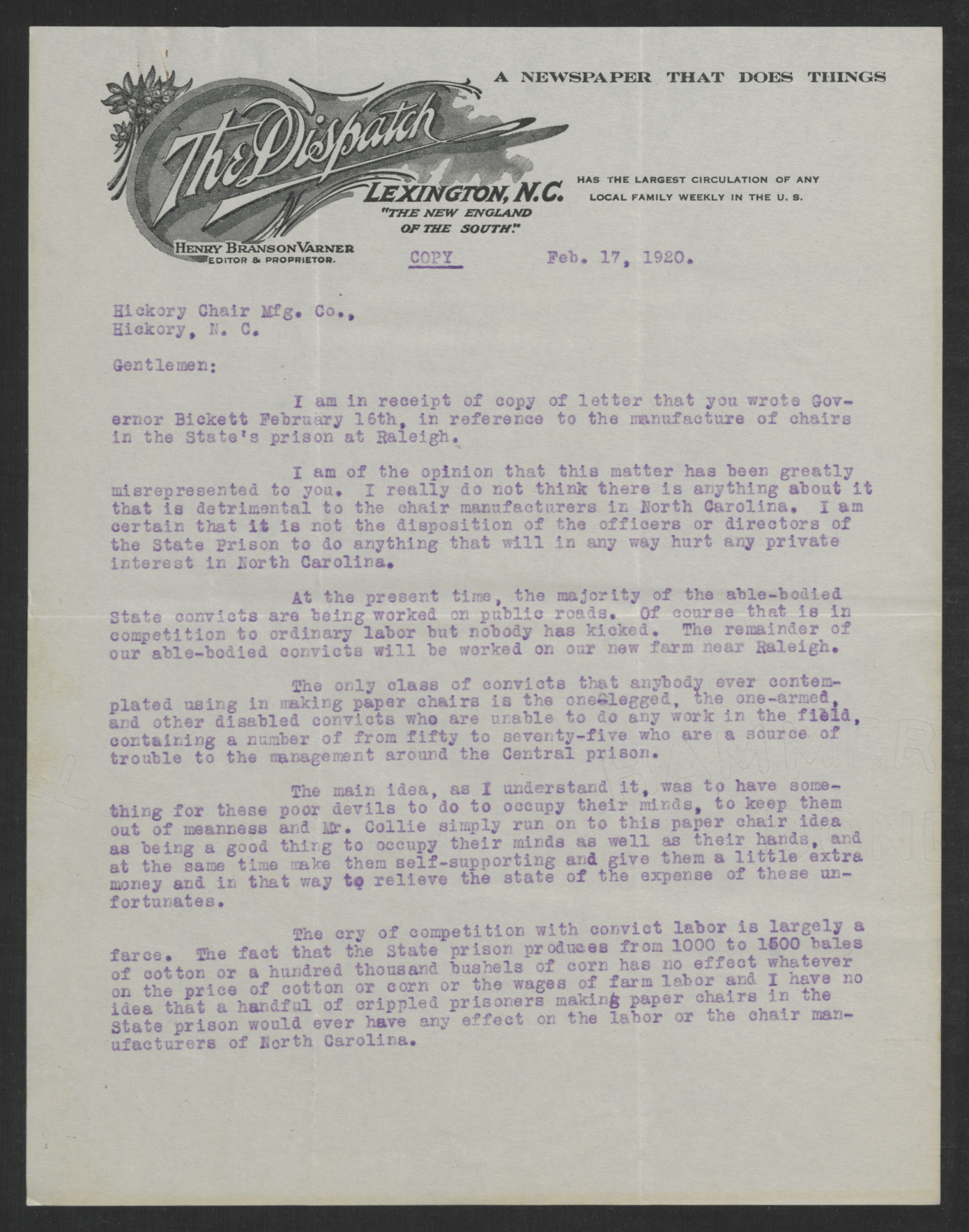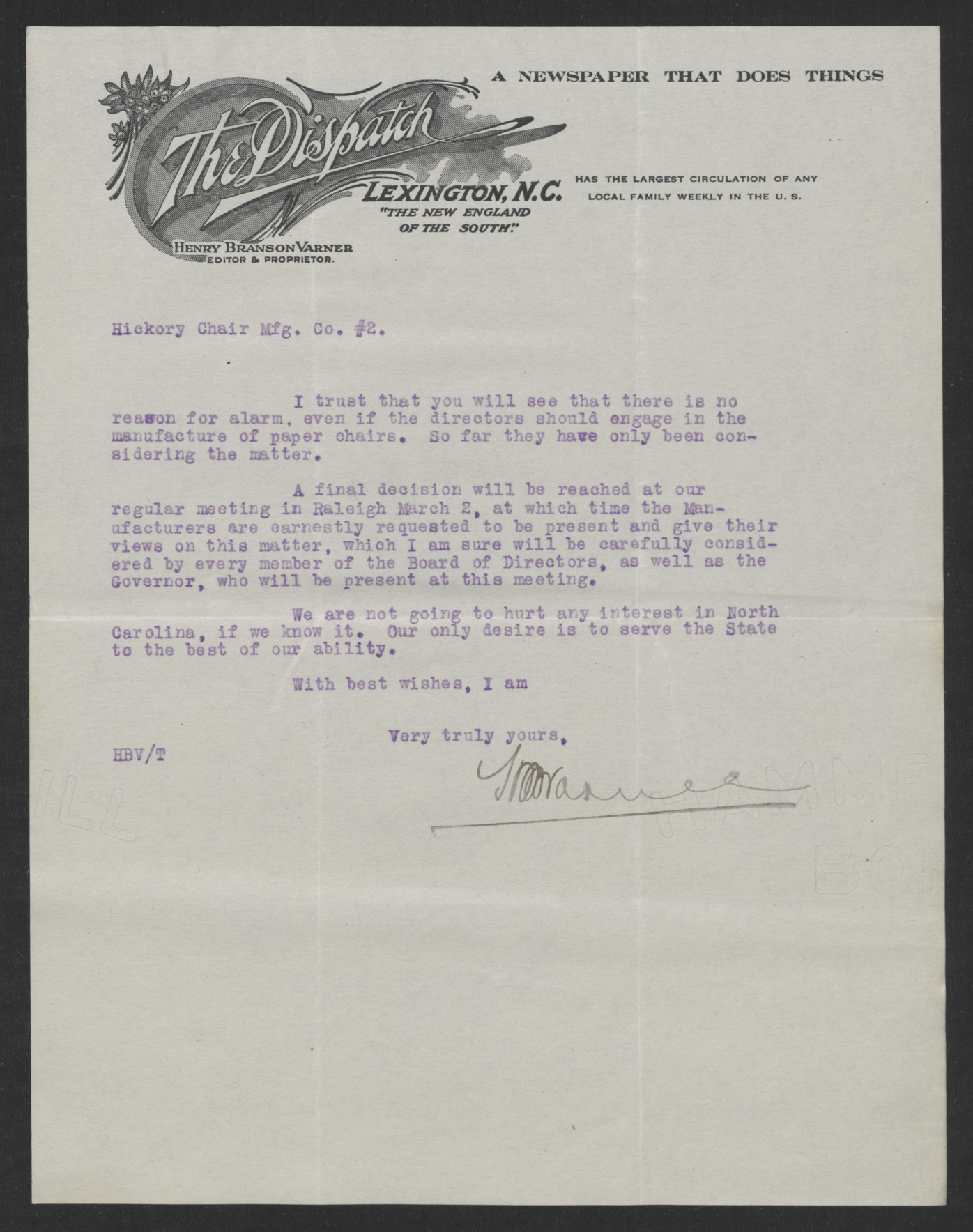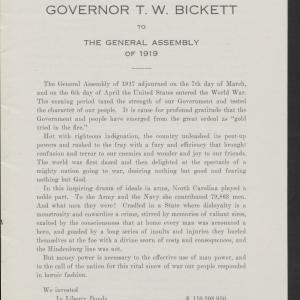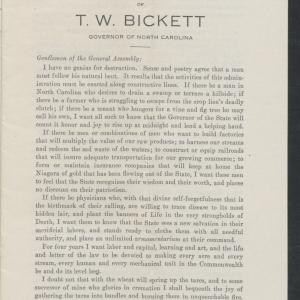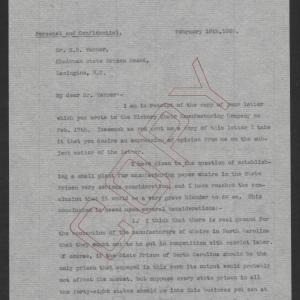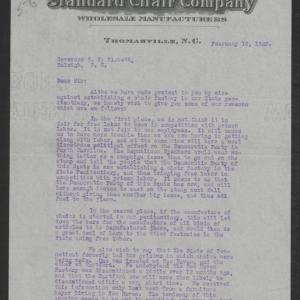The Dispatch
LEXINGTON, N.C.
COPY
Feb. 17, 1920.
Hickory Chair Mfg. Co.,
Hickory, N.C.
Gentlemen:
I am in receipt of copy of letter that you wrote Governor Bickett February 16th, in reference to the manufacture of chairs in the State's prison at Raleigh.
I am of the opinion that this matter has been greatly misrepresented to you. I really do not think there is anything about it that is detrimental to the chair manufacturers in North Carolina. I am certain that it is not the disposition of the officers or directors of the State Prison to do anything that will in any way hurt any private interest in North Carolina.
At the present time, the majority of the able-bodied State convicts are being worked on public roads. Of course that is in competition to ordinary labor but nobody has kicked. The remainder of our able-bodied convicts will be worked on our new farm near Raleigh.
The only class of convicts that anybody ever contemplated using in making paper chairs is the one-legged, the one-armed, and other disabled convicts who are unable to do any work in the field, containing a number of from fifty to seventy-five who are a source of trouble to the management around the Central prison.
The main idea, as I understand it, was to have something for these poor devils to do to occupy their minds, to keep them out of meanness and Mr. Collie simply run on to this paper chair idea as being a good thing to occupy their minds as well as their hands, and at the same time make them self-supporting and give them a little extra money and in that way to relieve the state of the expense of these unfortunates.
The cry of competition with convict labor is largely a farce. The fact that the State prison produces from 1000 to 1500 bales of cotton or a hundred thousand bushels of corn has no effect whatever on the price of cotton or corn or the wages of farm labor and I have no idea that a handful of crippled prisoners making paper chairs in the State prison would ever have any effect on the labor or the chair manufacturers of North Carolina.
I trust that you will see that there is no reason for alarm, even if the directors should engage in the manufacture of paper chairs. So far they have only been considering the matter.
A final decision will be reached at our regular meeting in Raleigh March 2, at which time the Manufacturers are earnestly requested to be present and give their views on this matter, which I am sure will be carefully considered by every member of the Board of Directors, as well as the Governor, who will be present at this meeting.
We are not going to hurt any interest in North Carolina, if we know it. Our only desire is to serve the State to the best of our ability.
With best wishes, I am
Very truly yours,
HBV/T

